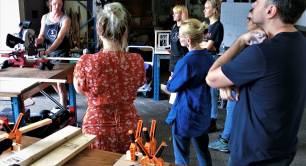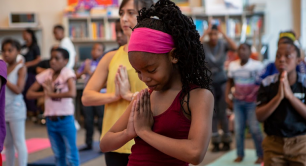Chain Reaction: “Boldly pursuing a career of courage”
Likumbi Kapihya and Sabrina Chakori are two women leading movements of great social and environmental change in their countries. Likumbi is one of the champions of social enterprise in Zambia, while Sabrina has dedicated her life’s work to changing environmental structures and reducing waste in Australia. In the final instalment of this year's Chain Reaction series, linking up social entrepreneurs across the globe in the run-up to the Social Enterprise World Forum, Sabrina interviews Likumbi. It is no surprise that the pair aren't afraid to address the sector's big questions – from why women social entrepreneurs might not get involved in conversations about money to whether impact investing really is that impactful.
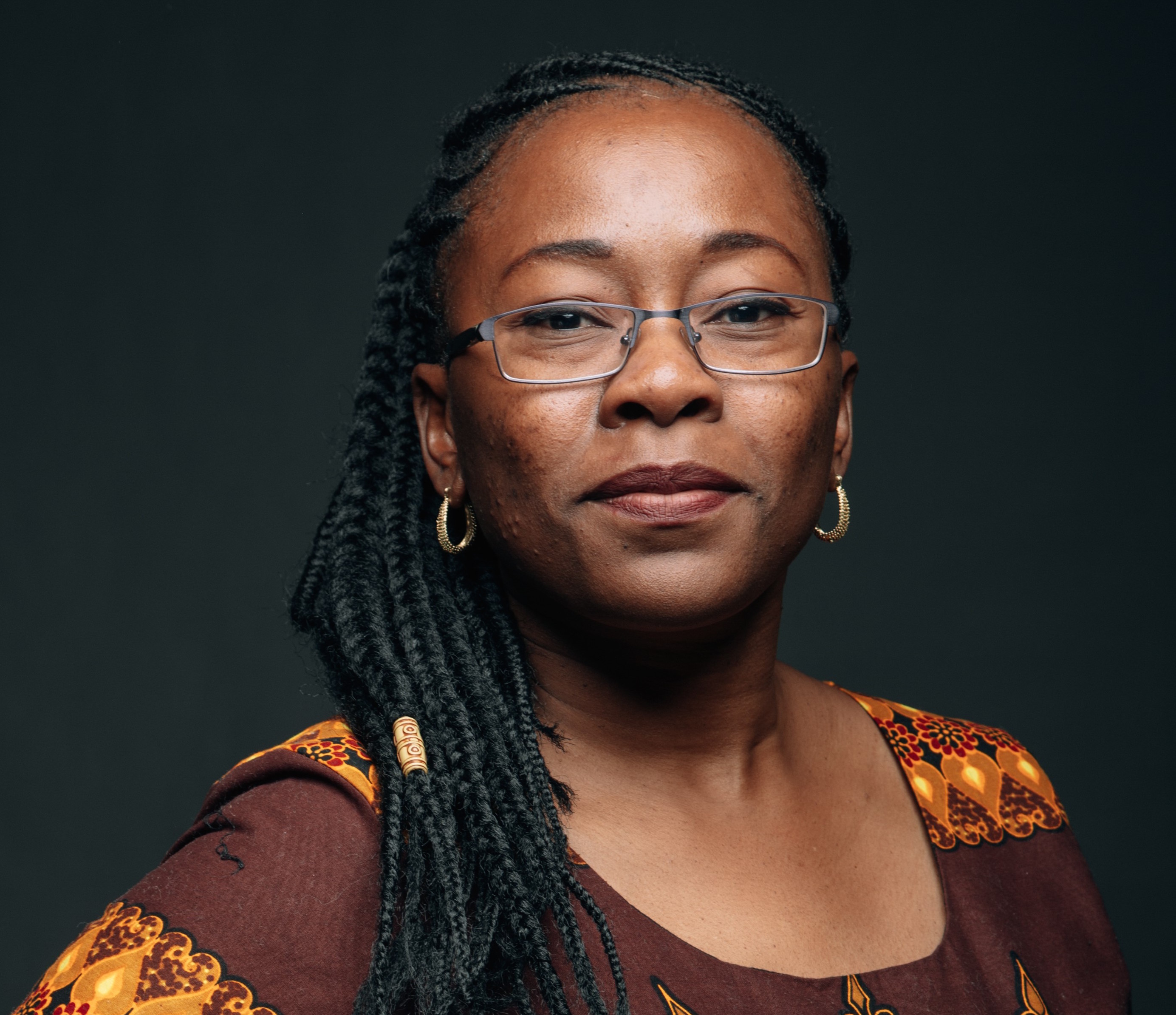
Likumbi Kapihya (above) is on a mission to see social enterprise grow in Zambia. She first discovered the term four years ago after leading a project to support rural community organisations to access clean, affordable energy. This project eventually became Chuluka Limited, a local social enterprise which sells affordable eco-products, including solar-powered lights and sustainably produced charcoal. Since then, she has been a keen advocate for the changes she thinks social enterprise can bring to Zambia and other emerging economies.
“It’s a different way of doing traditional development. Usually, we’re waiting for funders from the west to fund developing programmes on water, sanitation, health and education. But when the funding runs out, what happens to those people?”
Likumbi went on to lead Zambia’s Social Enterprise Academy (SEA) programme where she works as a hub manager, supporting social entrepreneurs from across the country. SEA Zambia is a social franchise from Social Enterprise Academy International, which is based in Scotland and has hubs in 13 countries across the world. The franchise was implemented there by BongoHive, Zambia’s first tech and innovation hub.
Likumbi is interviewed by Sabrina (below), founder of the Brisbane Tool Library, for the latest in our Chain Reaction series linking up social entrepreneurs from across the globe.
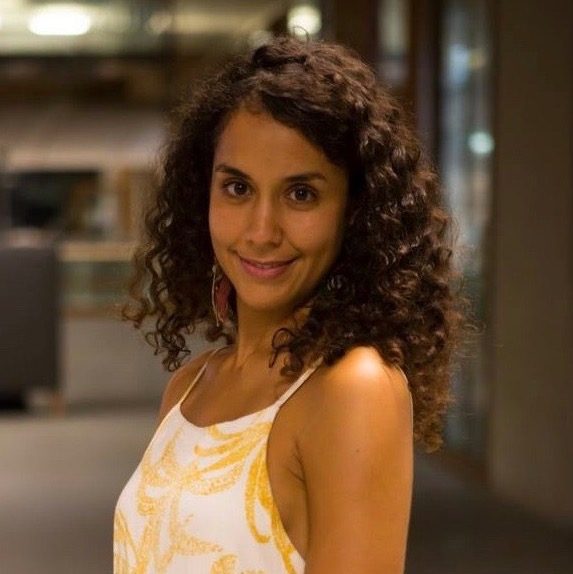
Sabrina Chakori: Can you give us an example of a social enterprise that the Social Enterprise Academy in Zambia is working with now?
Likumbi Kapihya: There’s Sani Foundation, who do job readiness for people with intellectual disabilities. They have structured courses, and they also have subsidiary businesses. One is a juice bar called Dice juice bar where the young people learn how to work. They have to turn up on time for their shifts, make the juices, practise customer services – it’s an actual business. They’re on every weekend in shopping malls, and the young people from their programmes are the ones staffing the juice bars.
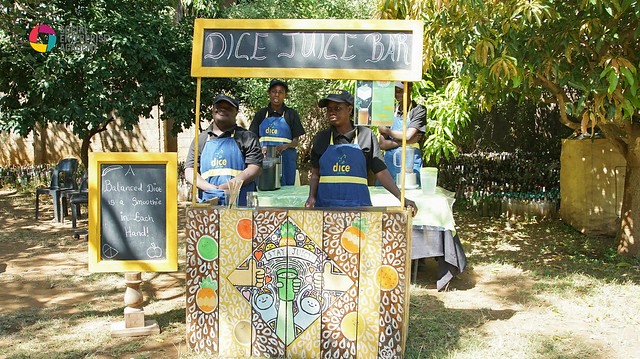
Sabrina: How is the SEA funded? We struggle to find funding for these types of initiatives in Australia.
Likumbi: Unfortunately, there are no public funds to support anything in this line. Our core funding (for this programme) comes from the Scottish Government, and we’re very fortunate that Zambia is one of their strategic focus countries for their Beyond Aid funding. Supporting entrepreneurship is one of the ways they are providing aid – specifically social enterprise. It’s a grant through SEA International.
The grant covers our SEA licence and gives us some operating costs to cover things like salaries and overhead costs. We can also use it to subsidise people attending our programmes. While we do sell our programmes for a fee, we have a sliding scale, so, for example, young women from marginalised communities can attend completely free, while corporates might pay a fee more reflective of what they can afford.
Sabrina: Are women playing an important role in the social enterprise sector?
Likumbi: Mostly social enterprises are led by women here. I sit in a tech hub so I know that the other tech or traditional enterprises are male-dominated. I think often women see a social problem quicker than men do. For example, if a village didn’t have water it would affect the women there more quickly because they have a more traditional caregiving role in our society.
But I don’t find women in the money conversation, or in impact investment or scaling conversations. Maybe they see the opportunity to start an opportunity – but do they see the opportunity for scale, for growth? I am not sure.
I don’t find women in the money conversation, or in impact investment or scaling conversations
Sabrina: I read a statistic recently that said women access less funding. And that gave me a message to myself. I realised that when I wanted to apply for grants or job positions I wouldn’t apply if I didn’t fit the criteria 100%. But studies show that men apply even if they don’t fit perfectly.
Do you have any opinions on impact investing? I don’t have a final opinion on it. But there are some who invest 5 to 10 per cent of their portfolio on impact, for example, homelessness, and the rest on businesses which are just contributing to the problem, like the housing market...
Likumbi: I’m still on the fence. There are some people championing impact investing who don’t always seem to understand the definition of impact. Is it their ability to link their cause to a Social Development Goal? Well, how meaningful is that if, on the other hand, you’re investing in the issue that the social enterprise is trying to solve?
But I have come across a few foundations, small ones, that seem to really understand and be committed to impact investing. So I think it needs to be taken on a case-by-case basis
Sabrina: Coming to the Social Enterprise World Forum, I’m aware of our imperialist past as Western countries. Do you see a risk in having impact investors that are from the global north?
Likumbi: There’s a context of remembering you’re not coming to a blank state. There are cultures and traditions found in the global south that European countries can learn from. You mentioned introducing no packaging for food, but we come from a culture that has never had packaging for food. We have our open markets with baskets and clay pots. So now we’re having to go back to things we already had before. Zero waste was already in our culture.
I think that if the money comes in with intentions not to distort what they find, that’s fine. I don’t think it’s inherently bad that funds come from the global north to the global south.
There are cultures and traditions found in the global south that European countries can learn from
Pioneers Post: Likumbi, on your LinkedIn page your tagline is “boldy pursuing a career of courage”. Do you think it takes courage to work in social enterprise?
Likumbi: Yes, definitely. Courage and a ‘bit of crazy’ to pursue a career where you believe that what you’re doing is going to make an impact. Traditional entrepreneurs just want to make money, but as a social entrepreneur you want both money and impact.
Sabrina: I feel that too. Even in the western so-called democracies, when we question the economic system I feel it’s still a taboo. So you need to have the courage to point out the right problem. Opening up the discussion takes courage. Gatherings like the Social Enterprise World Forum are really important, so you don’t feel like the only crazy person.
Likumbi: I attended Social Enterprise World Forum last year, and when I went, I was the only Zambian there, unless someone was hiding! But the Hong Kong, Singapore, Ethiopian contingents all came with a government official – that’s how important it was to them.
So it was great to see what it can look like, and having that world view was really helpful. I’m happy to say that this year there will be a bigger contingent coming from Zambia, and I’m excited that others who come with me will hopefully be bitten by the bug of social entrepreneurship.
The Chain Reaction playlist
We ask each Chain Reaction interviewee to choose a song to represent their country for our new Chain Reaction playlist, which will collect sounds from across the world as we continue the chain.
Likumbi’s choice: Chipolopolo by Tribal Cousins
“My song selection is a song called ‘Chipolopolo’ which means ‘copper bullet’ and is the nickname of the Zambian nation soccer team.
I chose it because soccer brings Zambians together despite age, gender or tribe.”
You can listen to the full Chain Reaction playlist here.
Header photo: Inclusivity training led by a sign language interpreter at a Measuring Impact session run by SEA Zambia. Photo credit: Radhia Mtonga, learning officer, SEA Zambia.

